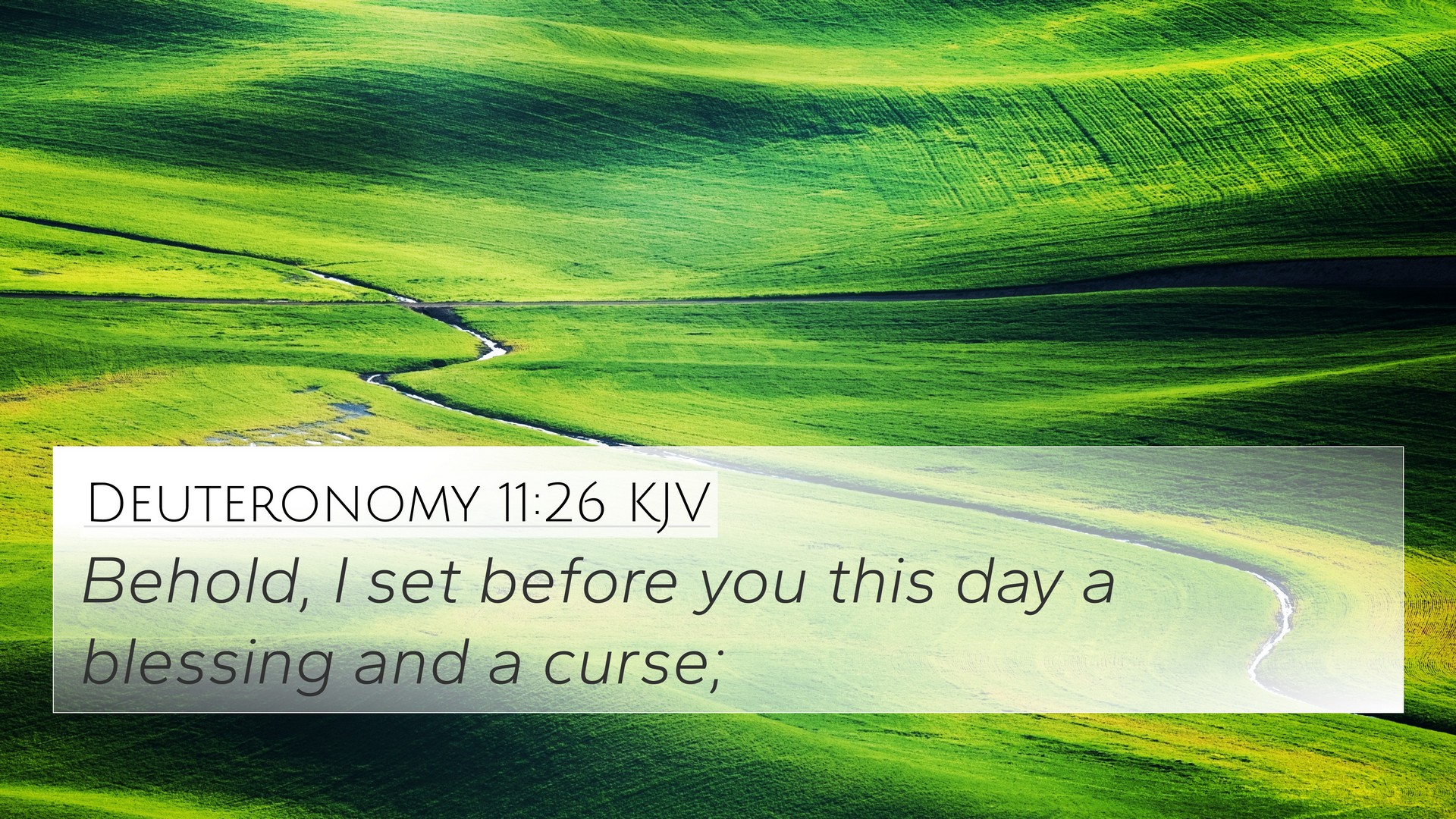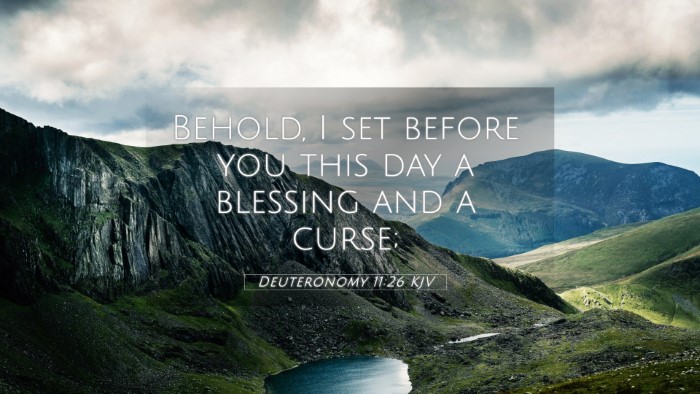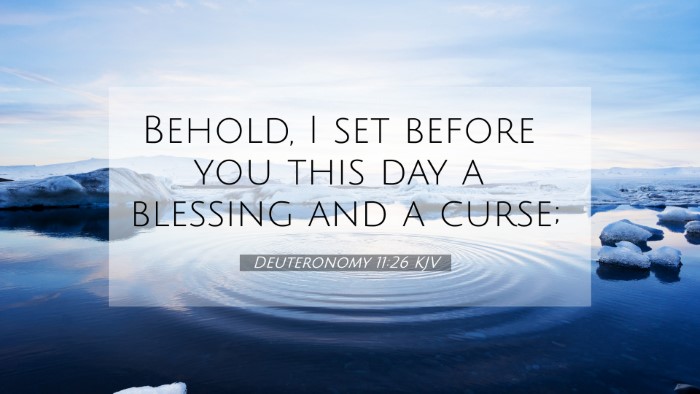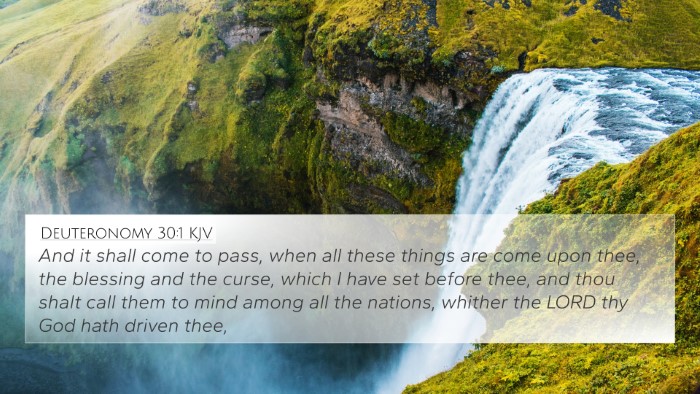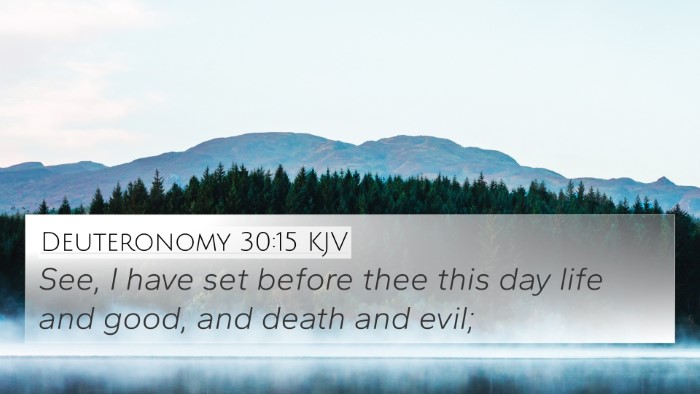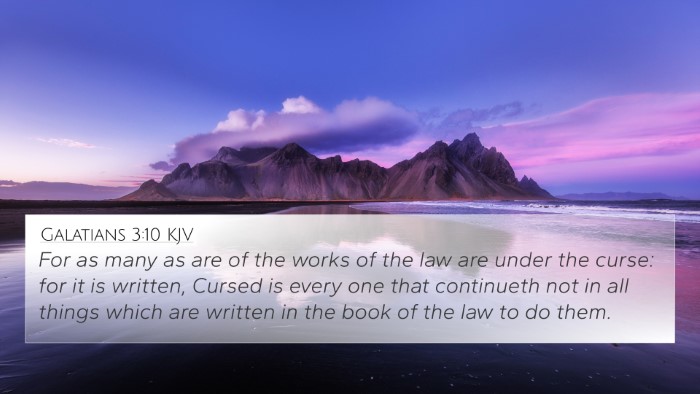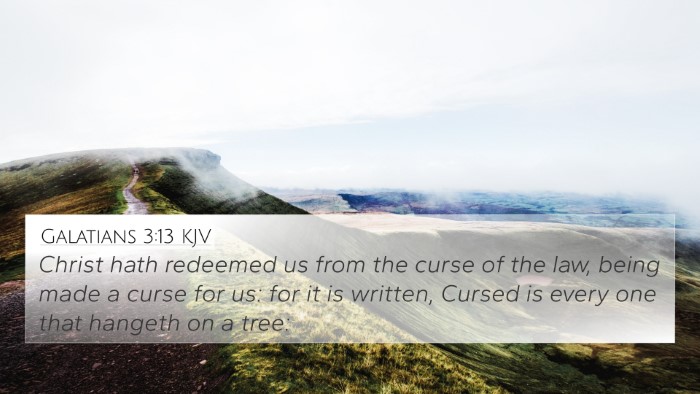Understanding Deuteronomy 11:26
Verse: "Behold, I set before you this day a blessing and a curse."
The verse from Deuteronomy 11:26 serves as a pivotal moment in the discourse of Moses to the Israelites, laying out the fundamental choices God presents to His people. This encapsulates the theme of divine choice, choice between good and evil, blessing and curse, that permeates throughout the Scriptures.
To gain a comprehensive understanding of this pivotal verse and how it connects within the larger narrative of the Bible, we will explore insights from public domain commentaries, including those by Matthew Henry, Albert Barnes, and Adam Clarke.
Commentary Insights
Matthew Henry's Commentary
Matthew Henry emphasizes the stark reality of choice presented by God. He highlights that blessings come through obedience to God's commandments, while curses arise from rebellion and sin. God's intention is not to impose on the people but to lead them to prosperity and fulfillment through their faithfulness.
Albert Barnes' Notes
Albert Barnes elaborates on the dual outcomes of following or rejecting God’s directives. He clarifies that the blessings referenced are both spiritual and material, showcasing God's holistic approach to blessing His people. When the Israelites heed God's commandments, they position themselves to receive these blessings.
Adam Clarke’s Commentary
Adam Clarke points out the historical context behind this verse, indicating that Moses was reiterating the covenant established by God with the Israelites. Clarke reinforces that this choice is not just momentary; it's a defining decision that will affect generations, underlining the significance of mindful and conscious living as per God's word.
Thematic Connections
Deuteronomy 11:26 is part of a larger theological framework regarding covenant and obedience. Below are key themes and connections to other Bible verses that reflect similar principles of choices, blessings, and curses:
- Joshua 24:15: "Choose you this day whom ye will serve..." - Similar call to make deliberate choices regarding service to God.
- Galatians 6:7: "For whatsoever a man soweth, that shall he also reap." - Emphasizes the principle of consequences from our choices.
- Proverbs 1:29-31: Highlights the consequences of rejecting knowledge and instruction.
- Deuteronomy 28:1-14: Lists the blessings of obedience to God's commandments, linking them directly to blessings mentioned in 11:26.
- Romans 2:6: "Who will render to every man according to his deeds." - Connects the idea of divine judgment based on our choices.
- Isaiah 1:19: "If ye be willing and obedient, ye shall eat the good of the land." - Affirms the theme of obedience leading to blessings.
- Luke 10:16: "He that heareth you heareth me; and he that despiseth you despiseth me." - Relates to the reception of God's word and its impactful consequences.
Called to Decision
The call to make a choice in Deuteronomy 11:26 mirrors the continuous call found throughout the scriptures for God's people to choose life, righteousness, and faithfulness over death, sin, and rebellion. This verse stands as a testament to the overarching narrative of salvation history, emphasizing that God desires that all will embrace His covenant blessings.
Inter-Biblical Reflections
This verse embodies a structure of cross-referencing themes, often linking back to the blessings and choices identified throughout the biblical text. Through tools for Bible cross-referencing, believers are encouraged to deepen their study and understanding of these connections.
- Thematic Bible Verse Connections: Understanding how Deuteronomy connects to other parts of the Bible offers deeper insights into God's character and expectations.
- Comparative Bible Verse Analysis: Analyzing similar calls in other books can enhance one’s comprehension of the singular message of obedience to God.
- Cross-Referencing Biblical Texts: Utilizing resources like a Bible concordance can facilitate morning devotions or sermon preparations based on these connections.
Conclusion
In summary, Deuteronomy 11:26 is a rich verse that encapsulates the essence of human responsibility in making choices that align with God’s will. By exploring resources available for cross-referencing Biblical texts, one can not only appreciate this verse more profoundly but also understand its significant implications within the architecture of scripture.
